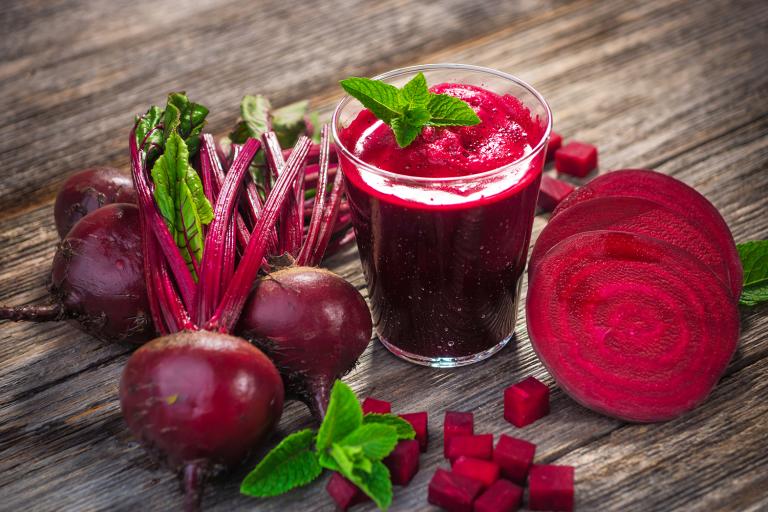Meet Beta vulgaris rubra
From sports performance enhancer to heart-failure helper, beetroot juice is having its day in the sun as a superfood. Even research scientists are digging it.
Going nuts for the rooted one isn’t new. Its recorded popularity as a panacea dates back to ancient Rome when folk medicine practitioners used it as an emmenagogue (menstruation provoker), hemostatic (hemorrhage arrester), and carminative (flatulence reliever).
It’s All About The Nitrates
The beetroot is, after all, a vegetable. By nature, all vegetables are comprised of essential nutrients. Seemingly Beta vulgaris rubra hit pay dirt: It is rich in vitamins C, folate, and B-6, and minerals such as iron, manganese, magnesium, phosphorus, potassium, and copper. It’s also rich in nitrates.
Nitrates make this superfood a superstar within scientific research. Inorganic nitrate naturally converts in the body to nitric oxide, which relaxes and dilates blood vessels. Opening vessels increases oxygen flow throughout the body and generates more energy. Oxygen-rich blood has been found to reduce the amount of oxygen that muscles need to optimally function.
Studies on Beets for Athletes
The US National Library of Medicine National Institutes of Health site hosts many peer-reviewed published studies that link concentrated beetroot juice consumption with enhanced physical performance.
One study published in the Journal of the Academy of Nutrition and Dietetics suggests that the consumption of beetroot improves running performance.
Another study published by Medicine and Science in Sports and Exercise found that nitrate-rich beetroot juice enhanced the time trial performance that put trained cyclists in a simulated high-altitude environment. Beetroot was found to be a credible agent in improving endurance exercise at high altitude.
A third study reported that those drinking the juice just prior to working out could push their workouts 16 percent longer, suggesting that increased dietary nitrate intake has the potential to enhance exercise tolerance during long-term endurance exercise.
Not Just for The Young and Fit
Since nitrates help open blood vessels, beetroot juice increases blood flow to the brain, and this action supports cognitive health at any age. Because lack of oxygenation causes people with cardiovascular, respiratory, or metabolic diseases to struggle with daily living activities, beetroot juice might improve quality of life.
Experts caution against replacing prescribed medications. Also, certain meds, including nitroglycerine, may interact with a high-nitrate diet. Beetroot can lead to kidney stones in some people. Be aware that consumption may temporarily turn urine pink, but this is not dangerous.

